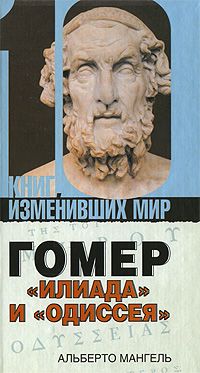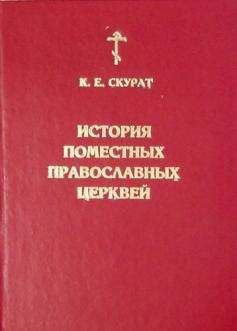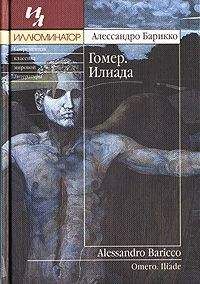Греческий автор, называвший себя Гераклит, по имени знаменитого философа-стоика, сочинил в первом веке нашей эры серию комментариев к Гомеру под названием «Аллегории Гомера». В первом из них говорится: «С самых ранних лет дети воспитываются и учатся у Гомера; обёрнутые пеленами его строк, мы питаем ими свою душу, как материнским молоком. Он подле каждого из нас, когда мы взрослеем и мужаем, он расцветает вместе с нами, и, дожив до старости, мы не можем насытиться им или устать от него, ибо если мы откладываем его в сторону, то вскоре снова жаждем его. Можно сказать, что это равно справедливо для Гомера и для самой жизни»[446].
Samuel Butler, The Authoress of the Odissey: Who and What She Was, When and Where She Wrote [1897], Second Edition With a New Preface by Henry Festing Jones (Jonatan Cape: London, 1922).
Gustave Flaubert, «Dictionnaire des idées reçues» in Bovuard et Pécuchet, introduction par Rayond Queneau (Editions du point du Jour: Paris, 1947).
Cf. André Gide, Oscar Wilde: In Memoriam (Mercure de France: Paris, 1910).
Virginia Woolf, «On Not Knowing Greek» in The Common Reader: First Series (The Hogarth Press, London, 1925).
Emanuel Geibel, «Kriegslied» in Heroldsrufe: Zeitgedichte, Gesammelte Werke, Band 4 (Cotta: Stuttgart, 1893).
Simone de Beauvoir, La femme rompue (Gallimard: Paris, 1963).
«many soul-destroying things / in holded tablets», The Iliad of Homer, translated by T. S. Brandeth, 2 volumes (W. Pickering: London, 1846).
«Mucho más que libros», Semana (Bogotá, 4 June, 2001).
Илиада, XXIV: 594-599
Илиада, XXIV: 613-620
Mustafa El-Abbadi, Life and Fate of the Ancient Library of Alexandria (Unesco: Paris, 1990).
Геродот, История, II:117
Athenaeus, The Deipnosophists, VIII:347e, translated and edited by Charles B. Gulick (W. Heinemann: London, 1950)
F. Zeitlin, «Visions and Revisions of Homer» in S. Goldhill, editor, Being Greek under Rome (Cambridge University Press: Cambridge and New York, 2001)
Геродот, История, V:58
Илиада, VI: 198-199
Cf. Bruce Heiden, «The Placement of Book Divisions in the Iliad», in Journal of Hellenic Studies, 1998. Также Minna Skafte Jensen, «Dividing Homer: When and How were the Iliad and the Odissey Divided into Songs?» in Symbolae Osloenses, 1999.
Jean Irigoin, «Homere, l'écriture et le livre» in Europe, 79e année, №865 (Paris, May 2001).
«Seven cities warred for Homer, being dead, Who, living, had no roof to shroud his head» — Thomas Heywood, The Hierarchy of the Blessed Angells. Their names, orders, and offices; the fall of Lucifer with his angells [1635] (Da Capo Press: New York, 1973).
Miguel de Cervantes Saavedra, El Ingenioso Hidalgo Don Quijote de la Manca, II:74 (Edición y notas, Celina S. de Cortázar e Isaías Lerner (editorial Universitaria de Buenos Aires, 1969).
«Hymn to Delian Apollo» v.175, in The Homeric Hymns, translated by Jules Cashford with and Introduction and Notes by Nicholas Richardson (Penguin Books: London and New York, 2003).
[Thomas Blackwell], An Enquiry into the Life and Writings of Homer, second edition (J. Oswald: London, 1736).
Herodotus, Vie d'Homére, mise en français d'Amyot par J.-J. van Dooren (Librarie Ancienne Edouard Champion: Paris, 1926).
«Blind Melesigenes thence Homer call'd» — John Milton, Paradise Regained, IV:259.
Héraclite, Fragments: Citations et témoignages, traduction et presentation par Jean-Francois Pradeau, 2e edition corrigée (Flammarion: Paris, 2004).
Herodotus, Vie d'Homére.
[Jean-Francois Pradeau ed.] Héraclite, Fragments: Citations et témoignages.
Одиссея, VIII:51-99.
Одиссея, VIII:302-410.
Одиссея, VIII:552-584.
Одиссея, I:178.
Одиссея, VIII:87.
E. T. «Translator's Note» in The Odyssey of Homer, translated into English prose by T. E. Shaw (Colonel T. E. Lawrence), (Oxford University Press, Galaxy Books: New York, 1956).
Albert B. Lord, The Singer of Tales (Harvard University Press: Cambridge, Mass., 1960).
Платон, диалог «Ион».
Платон, «Ион».
Claude Mosseé, La Gréce archaique d'Homére à Eschyle (Editions du Seuil: Paris, 1984).
Thomas De Quincey, «Homer and the Homeridae» in The Works of Thomas De Quincey, volume 13, edited by G. Lindop et alt. (Pickering and Chatto: London, 2001).
J. M. Foley, Homer's Traditional Art (Penn State University Press: University Park, Penn, 1999).
Gilbert Murray, Five Stages of Greek Religion, third edition with a new introduction by the author (Doubleday: New York, 1951).
Страбон, «География», 1:73.
Аристотель, «Метафизика» B4, 10000a19.
Paul Veyne, Les Grees ont-ils cru á leurs mythes? (Editions du Seuil: Paris, 1983).
John Burnet, Early Greek Philosophy (Adam and Charles Black: Edinburgh, 1892).
Cf. Jacqueline de Romily, La Grèce antique contre la violence (Editions de Fallois: Paris, 2000).
Плутарх, «Алкивиад» в «Сравнительных жизнеописаниях».
Платон, «Государство», Книга X.
Там же.
Aldous Huxley, Brave New World (Chatto and Windus: London, 1933).
Платон, «Гиппий Меньший».
Мигель де Сервантес, «Дон Кихот Ламанчский».
Аристотель, «Поэтика», книга IV.
Цицерон, «Оратор».
John Milton, Areopagitica: A Speech og Mr. John Milton, first published 1644 (G. P. Punam's Song: New York and London, 1938).
Страбон, «География», 13.I.45.
Irad Malkin, The Returns of Odysseus: Colonization and Etnicity (University of California Press: Berckeley, California, 1998).
Илиада, XI:747-753.
J. Irgoin, «Les editions des poètes à Alexandrie» in Sciences exactes et sciences appliqués a Alexandrie, Actes du coloque international de St-Etienne (Université de St-Etienne: St-Etienne, 1996).
Gregory Nagy, «Aristarchean Questions» in Bryn Mawr Classical Review, VII.14 (Bryn Mawr, PA, 1998).
Tomas Hägg, The Novel in Antiquity (University of California Press: Berkley and Los Angeles, 1983).
Horace, Epîtres II: 1 «A Auguste» in Oeuvres (Garnier Frères: Paris, 1967).
Плиний приписывает эту ремарку своему другу Атилиусу. «A Novius Maximus» Lettres I-IX, [II:14] ed. A. M. Guillemin, 3 vols. (Les Belles Lettres: Paris, 1927–28).
Peter Levi, Horace: A Life (Duckworth: London, 1997).
Horace, Epîtres II: 1 «A Auguste».
Horace, Epîtres I: 2 «A Lollius».
Quitilian, The Orator's Education, Book 10, in volume IV, edited and translated by Donald A. Russel (Harvard University Press: Cambridge, Mass. and London, 1970).
Илиада, II:819-821.
Cf. Claudia Moatti, La Raison de Rome: Naissance de l'esprit critique à la fin de la République (Editions du Seuil: Paris, 1997).
Peter Levi, Virgil: His Life and Times (Duckworth: London, 1998).
Manuel Sanz Morales, Milógrafos griegos (Akal: Madrid, 2002).
Tim Whitmarsh, Ancient Greek Literature (Polity: Cambridge, 2004).
Вергилий, «Энеида», VI:847-853 (цитируется в переводе С. Ошерова под ред. Ф. Петровского).
Hermann Broch, Der Tod des Vergil [1945] (Rhein Verlag: Zurich, 1958).
Энеида, I:283-284.
Илиада, XX:210-211.
Среди них Стесихор Сицилийский в VI в. до н. э. и Элланикус Лесбосский в V в. до н. э.
Cf. Niall Rudd, Introduction to Horace: Satires and Epistles and Persius: Satires (Penguin Books: Harmondsworth, 1973).
Lucretius, On the Nature of Things, Introduction by Wendell Clausen, translated by H.A.J. Munro (Washington Square Press: London, 1965).
Lewis Carroll, «What the Tortoise said to Achiless» in Mind, April 1895, in The Complete Works of Lewis Carroll (The Nonesuch Press: London, 1922).
The Iliads of Homer, Prince of poets, Never Before in Any Language Truly Translated, Done According to the Greek by George Chapman (George Newnes: London and Charles Scribner's Sons: New York, 1904).
Англ. цит. по Homer in English, edited with an Introduction and Notes by George Steiner (Penguin Books: London, 1996).
Alexandre Pope, The Iliad and The Odyssey of Homer, edited by the Rev. H.F. Cary (George Routledge and Sons: New York, 1872).
Англ. цит. по Homer in English.
Iliad, in 2 volumes, with an English translation by A.T. Murray (Harvard University Press: Cambridge, Mass., and London, 1924, reprinted 2001).




